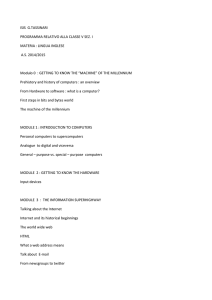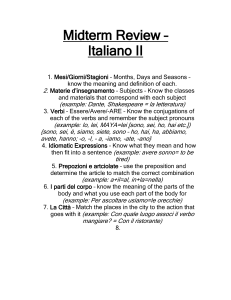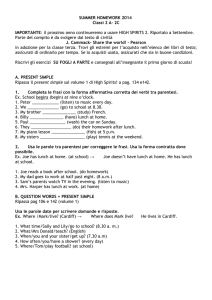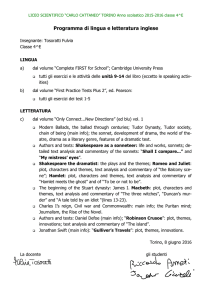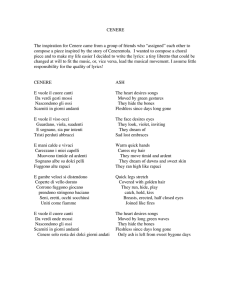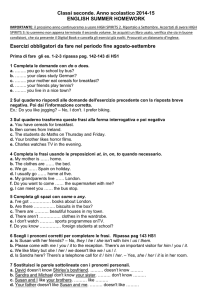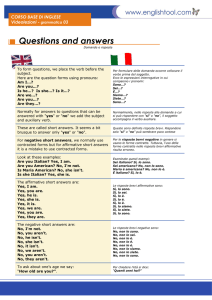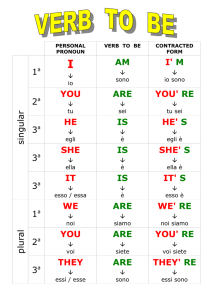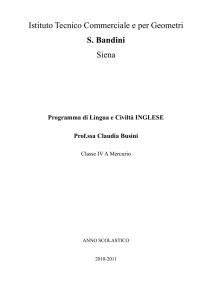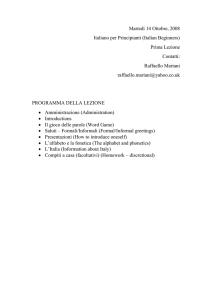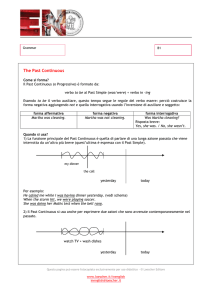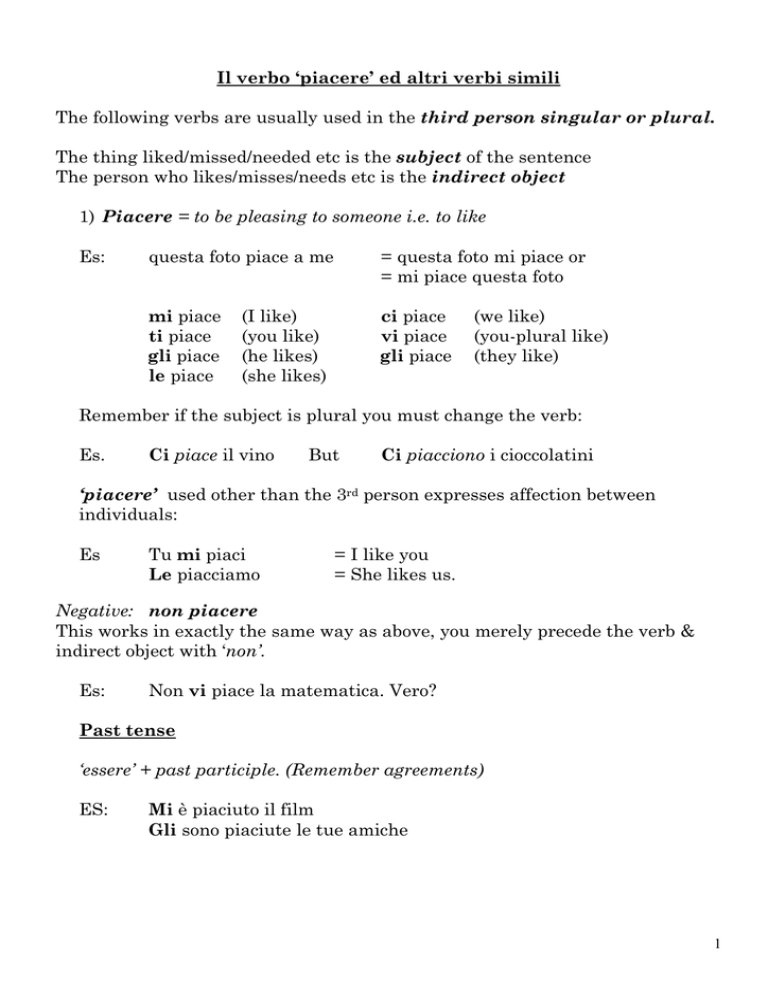
Il verbo ‘piacere’ ed altri verbi simili
The following verbs are usually used in the third person singular or plural.
The thing liked/missed/needed etc is the subject of the sentence
The person who likes/misses/needs etc is the indirect object
1) Piacere = to be pleasing to someone i.e. to like
Es:
questa foto piace a me
= questa foto mi piace or
= mi piace questa foto
mi piace
ti piace
gli piace
le piace
ci piace
vi piace
gli piace
(I like)
(you like)
(he likes)
(she likes)
(we like)
(you-plural like)
(they like)
Remember if the subject is plural you must change the verb:
Es.
Ci piace il vino
But
Ci piacciono i cioccolatini
‘piacere’ used other than the 3rd person expresses affection between
individuals:
Es
Tu mi piaci
Le piacciamo
= I like you
= She likes us.
Negative: non piacere
This works in exactly the same way as above, you merely precede the verb &
indirect object with ‘non’.
Es:
Non vi piace la matematica. Vero?
Past tense
‘essere’ + past participle. (Remember agreements)
ES:
Mi è piaciuto il film
Gli sono piaciute le tue amiche
1
Other useful expressions/ tenses
Mi piacerebbe andare in Italia
= I would like to go to Italy
Mi sarebbe piaciuto visitare Roma = I would have liked to visit Rome
2) Other verbs that are used like ‘Piacere’:
a) Bastare
Es:
= to be enough/ to suffice
Mi basta un chilo
Non ci bastano 5 Euro
= a kilo is enough
= 5 Euros is not enough
b) Mancare = to miss/ to be lacking
Es:
La signora Savioli ci manca
Tu mi manchi
= we miss Mrs. Savioli
= I miss you
Past:
I nostri amici ci sono mancati
= we missed our friends
Also:
Gli mancano ancora due esami
= He has two more exams to go
c) Occorrere = to need/ be necessary
Es:
Ci occorre il suo indirizzo
d) Restare
Es:
= we need his/her address
= to remain /’be left’
Vi restano due settimane prima della vacanza
= there are two weeks left before the vacation.
e) Servire
= to be useful/ to need (like ‘avere bisogno di’)
Es:
Mi serve il tuo aiuto
= I need your help
Past:
Il tuo consiglio mi è servito molto.
= your advice was very useful
2

